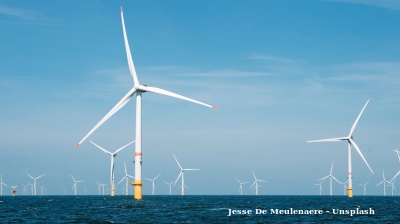A new report finds that fossil fuel energy use rose to a record high in 2023, despite efforts to combat climate change.
The UK-based Energy Institute (EI) and co-authors KPMG and Kearney released the 73rd annual edition of the Statistical Review of World Energy, presenting for the first time full global energy data for 2023.
Global energy consumption hit a record, with coal and oil pushing fossil fuels and their emissions to unprecedented levels. Global primary energy consumption overall was at a record absolute high, up 2% on the previous year to 620 exajoules (EJ).
Global fossil fuel consumption reached a record high, up 1.5% to 505 EJ. This was driven by coal up 1.6%, oil up 2% to above 100mn barrels for first time, while gas consumption was flat.
As a share of the overall mix, fossil fuels were at 81.5%, marginally down from 82% last year. Global energy use is rising, with the economic growth of developing regions and as the developed world relies ever more on data centres and cloud computing.
Unfortunately, emissions from energy increased by 2%, exceeding 40 gigatonnes of CO2 for the first time, said the report.
Solar and wind installations pushed global renewable electricity generation to another record level. Renewables generation, excluding hydro, was up 13% to a record high of 4,748 TWh, said EI and its co-authors.
This growth was driven almost entirely by wind and solar, and accounted for 74% of all net additional electricity generated. As a share of primary energy use, renewables (excluding hydro) were at 8%, or 15% including hydro power.
The ongoing Ukraine war is cementing a rebalancing of gas in Europe, said the report. European gas demand contracted by 7% following a fall of 13% in 2022. Russia’s share of EU gas imports dropped to 15%, down from 45% in 2021, with LNG imports outflanking piped gas to Europe for a second year in a row.
Be that as it may, dependence on fossil fuels in major advanced economies is likely to have peaked, said EI. In Europe fossil fuels slid to below 70% of primary energy for the first time since the Industrial Revolution, driven by demand reduction and renewable energy growth.
In the US, consumption of fossil fuels fell to 80% of total primary energy consumed.
So-called growth economies struggle to curb fossil fuel growth, but renewables accelerated in China. Its full return post-Covid saw fossil fuel use increase to a new high, up 6%, but as a share of primary energy it has been in decline since 2011, down to 81.6% in 2023.
China added 55% of all renewable generation additions in 2023, that is, more than the rest of the world combined. It also overtook Europe on an energy per capita basis for the first time.
India’s fossil fuel consumption was up 8%, accounting for almost all demand growth, and stood at 89% share of overall consumption. For the first time, more coal was used in India than in Europe and North America combined.
In Africa primary energy consumption fell in 2023 by 0.5%. Fossil fuels accounted for 90% of overall energy consumption, with renewables – excluding hydro – at only 6% of electricity.
EI’s chief executive, Nick Wayth, FEI, said: “The progress of the transition is slow, but the big picture masks diverse energy stories playing out across different geographies. In advanced economies we observe signs of demand for fossil fuels peaking, contrasting with economies in the Global South for whom economic development and improvements in quality of life continue to drive fossil growth.”
Simon Virley, vice chair and head of energy and natural resources at KPMG in the UK, added: “In a year where we have seen the contribution of renewables reaching a new record high, ever increasing global energy demand means the share coming from fossil fuels has remained virtually unchanged at just over 80% for yet another year.
He continued: “With CO2 emissions also reaching record levels, it’s time to redouble our efforts on reducing carbon emissions and providing finance and capacity to build more low-carbon energy sources in the Global South where demand is growing at a rapid pace.”
bneGREEN

Singapore’s green pivot – headline grabbing but still limited
Forays into offshore wind via regional cooperation with neighbours, and forward-looking bets on hydrogen and low-carbon fuels are making headlines, but the scale required to wean a heavily gas-dependent system off fossil fuels is still daunting.

North Macedonia's Skopje tackles mounting waste and rodent crisis
Locals say the problems in Skopje's Centar municipality worsened during the local election period when political campaigning took precedence over maintenance.

Malaysia–Vietnam offshore wind project to deliver 2,000 MW by 2034, strengthening regional green energy links
Malaysia’s upcoming offshore wind project connecting Vietnam to Peninsular Malaysia is expected to generate up to 2,000 megawatts (MW) of clean energy by 2034, marking a major step in the nation’s renewable energy expansion

EBRD invests €16.8mn in Croatia’s first large-scale battery storage and virtual power plant
Development bank to take its first equity stake in a standalone merchant storage project.




